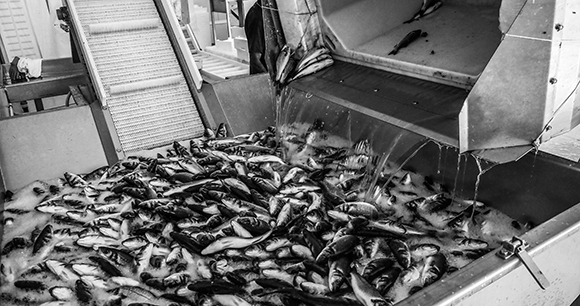- このトピックは空です。
- 投稿者投稿
- 3月 18, 2025 11:19 pm #597112

Fish production and management in the economy is multifaceted, extending beyond mere sustenance to encompass significant economic, social, and environmental dimensions.
Fish constitute a vital source of protein for billions worldwide, and the industry surrounding their capture and cultivation generates substantial revenue and employment.
Effective management practices are crucial to ensure the sustainability of this resource and its continued contribution to global prosperity.
1. Food Security And Nutritional Value
Fish are a critical component of food security, particularly in developing nations and coastal communities. They provide essential nutrients, including omega-3 fatty acids, vitamins, and minerals, which are crucial for human health.
Furthermore, fish protein is often more affordable and accessible than other animal protein sources, making it a staple in diets across diverse populations. The availability and affordability of fish directly impact the nutritional well-being of communities, reducing malnutrition and related health issues.
The production and management of fisheries therefore play a pivotal role in ensuring that populations have access to a stable and nutritious food supply, contributing to overall health and productivity.
2. Employment Generation And Livelihoods
The fisheries and aquaculture sectors are significant employers, providing livelihoods for millions of people globally. This includes direct employment in fishing, fish farming, processing, and distribution, as well as indirect employment in related industries such as boat building, gear manufacturing, and transportation.
In many coastal and rural areas, fishing is the primary source of income, supporting entire communities. Sustainable fish production and management are essential for maintaining these livelihoods and preventing economic hardship.
Effective management practices can ensure that fishing resources remain viable for future generations, securing long-term employment and economic stability. The sector contributes to poverty reduction and economic development by providing income opportunities and supporting local economies.
3. Trade And Economic Growth
Fish products are traded extensively both domestically and internationally, contributing significantly to national economies. Exports of fish and seafood generate valuable foreign exchange earnings, which can be used to fund imports and support economic development.
The aquaculture industry, in particular, has seen rapid growth in recent decades, driven by increasing demand for seafood and advancements in farming technology. This growth has created new opportunities for investment, innovation, and economic diversification.
Well-managed fisheries and aquaculture operations can enhance the competitiveness of national seafood industries, leading to increased trade and economic growth. The economic impact extends to associated industries, like packaging and shipping.
4. Ecosystem Services And Environmental Sustainability
Fish populations are integral to the health of aquatic ecosystems, playing crucial roles in nutrient cycling, food webs, and biodiversity. Sustainable fish production and management are essential for maintaining the ecological integrity of these ecosystems.
Overfishing and destructive fishing practices can lead to the depletion of fish stocks, habitat degradation, and the loss of biodiversity. Effective management measures, such as catch limits, protected areas, and responsible aquaculture practices, are necessary to ensure the long-term sustainability of fisheries resources.
Healthy ecosystems, in turn, provide a range of valuable services, including water purification, flood control, and carbon sequestration, which contribute to human well-being and economic prosperity.
5. Tourism And Recreation
Fishing and related activities, such as recreational fishing and ecotourism, contribute to the tourism sector and generate significant economic benefits. Sport fishing, in particular, attracts tourists from around the world, boosting local economies and creating jobs.
Coastal areas with healthy fish populations and attractive fishing spots are often popular tourist destinations. Sustainable management of fisheries resources is crucial for maintaining the appeal of these destinations and ensuring the long-term viability of tourism-related businesses.
The economic impact extends to local businesses, restaurants, and accommodation providers that cater to tourists.
In summation, the role of fish production and management in the economy is indispensable. From providing essential nutrition and employment to driving trade and supporting ecosystem health, the fisheries and aquaculture sectors play a pivotal role in global economic and social development.
Sustainable management practices are crucial for ensuring that these benefits are realized in a way that safeguards the long-term viability of fish resources and the ecosystems they inhabit.
By prioritizing responsible fishing and aquaculture, we can ensure that fish continue to contribute to food security, economic prosperity, and environmental sustainability for generations to come.
Read Also: Ornamental Fisheries and Aquarium Design
- 投稿者投稿
- このトピックに返信するにはログインが必要です。






